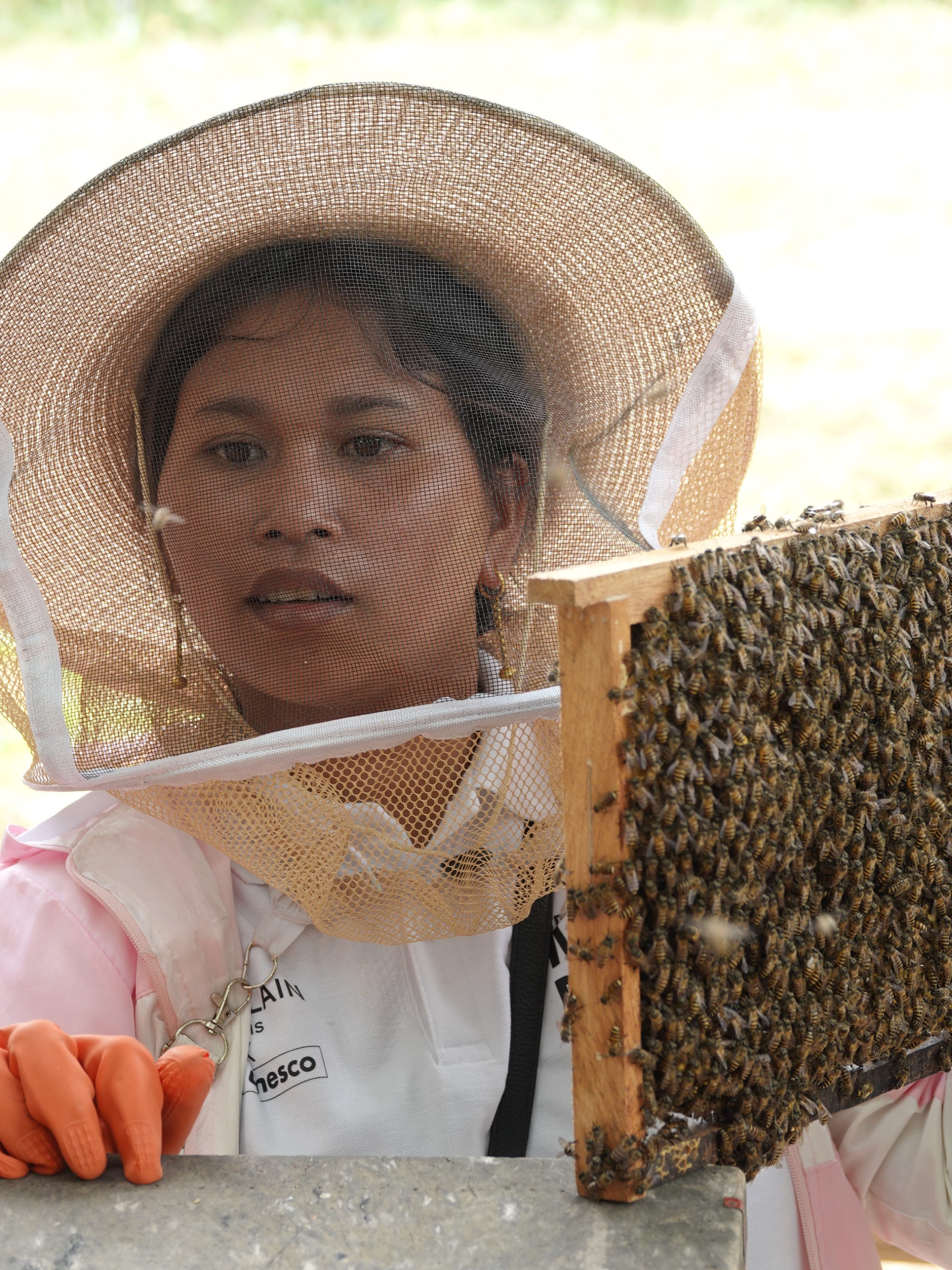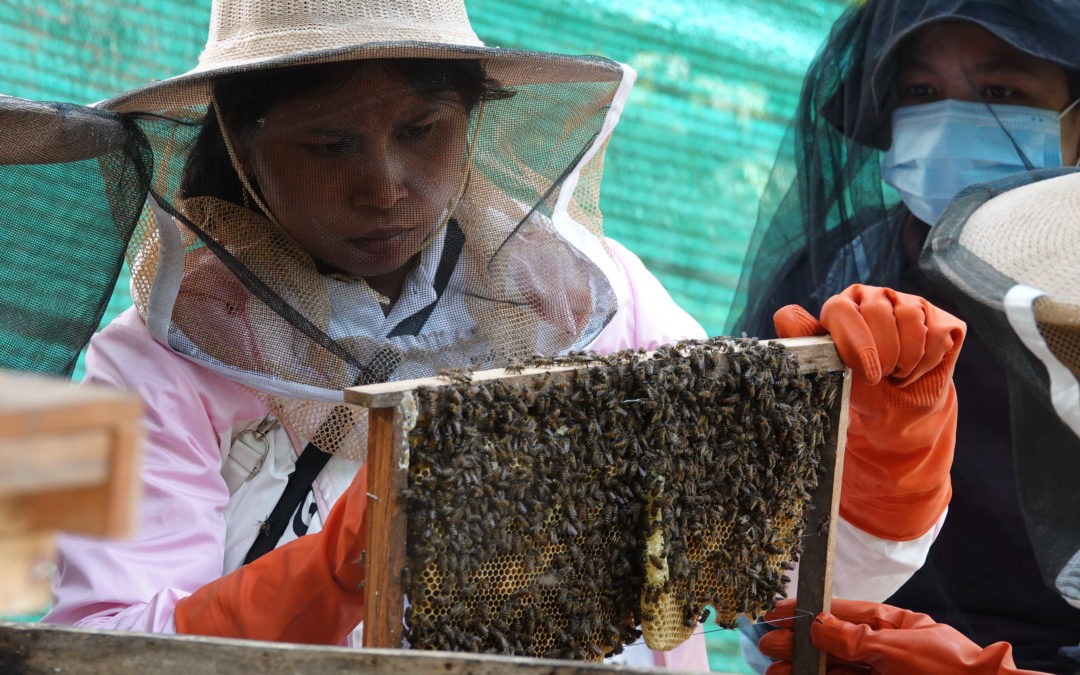Launched in 2021 by UNESCO and Guerlain, the Women for Bees program, whose godmother is Angelina Jolie, aims to promote beekeeping around the world while strengthening the role of women in their communities.
Before having a social dimension, the program is mainly focused on the protection and repopulation of bees, responsible for 90% of the pollination of wild flowers worldwide. Today threatened by climate change, UNESCO plans to install 2500 beehives in 25 biosphere reserves around the world: in France, Italy, Bulgaria, Slovenia, Russia, Ethiopia, Rwanda, China and Cambodia. Indeed, the Tonle Sap region is one of the largest biosphere reserves today and the majestic forest surrounding the temples of Angkor is an ideal place for their development.
The initiative aims to study the benefits of pollination while putting women at the heart of the action. A predominantly male profession, the Women for Bees program encourages women to be “change makers” by becoming beekeepers. The training takes place over several weeks and consists of teaching these women the techniques of sustainable beekeeping, encouraging them to learn and become true experts in the field, before being able to extend their knowledge to others.

In Cambodia, the challenge is to protect the wild bees of the country, regrouping 4 species in total, where in France only one species exists. Eric Guérin, a French biologist and specialist in the conservation of wild Asian bees and sustainable beekeeping, is in charge of the program in Siem Reap and is training six women to become beekeepers, working with one of the Asian bee species that exists here, “apis cerana”. Of these 6 women, 4 are mothers whose children are at the Bayon School.
“Beyond learning technical skills, this training is an opportunity for them to empower themselves by realizing that they are finally capable of doing it. All of them, the first time, and as is often the case in Cambodia among the most underprivileged populations, especially women, answer that they will not know how to do it, or that they don’t have the means to learn. And in the end, they themselves were surprised by their ability to learn about the subject.” explains Eric, who works with them every week in the field.
Located in the temples of Angkor, these future beekeepers are all from underprivileged backgrounds, a selection criterion to be part of the project: if objective number 1 is to preserve bees, a fragile symbol of a planet damaged by climate change, objective number 2, just as important, is to strengthen the skills of women around the world by involving them in the preservation of a sustainable environment.
Eric explains that over the course of the weeks, they have changed: “The women I have in front of me today are not the same as they were four months ago. They have gained confidence, they express themselves freely, they give their opinion. Their transformation is remarkable, as is their desire to learn.”
They have, more than others, an important role to play, especially when we know that they are the first to be impacted by global warming throughout the world (UNDP), and that the consequences of these disruptions lead to inequalities indirectly related to gender issues and social oppressions that women around the world are facing today (United Nations).
At the end of the training given by Eric Guérin, our beekeepers will work together with some of the guides of the Angkor temples to offer tourists a visit of their hives and an awareness session on the preservation of bees around the world. This activity will also allow them to generate a complementary income to their daily activities, thus improving their current living conditions.
“The tour of the apiaries by tourists will be very important, because it will allow these women to see that what they do is of interest to people all over the world, that they have things to contribute, and that what they have mastered now, few people know how to do as well.”

Angelina Jolie recently came to visit them on their grounds to encourage them and see their progress. This is an incredible chance for them to affirm themselves and gain confidence in their communities.
It is also an opportunity for these women to share their knowledge with the youth and adults of the Bayon School who surround them and to help others to rise up around them.
Written by Pénélope Hubert, communication manager at Bayon School.

